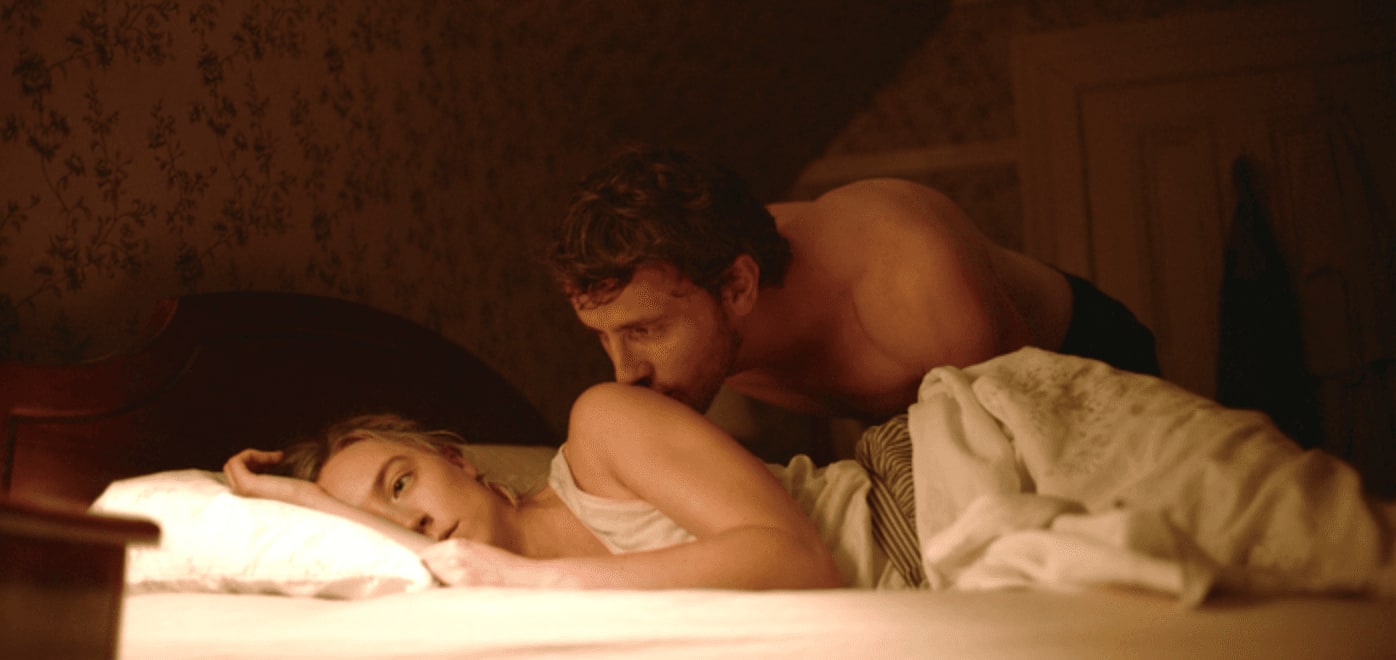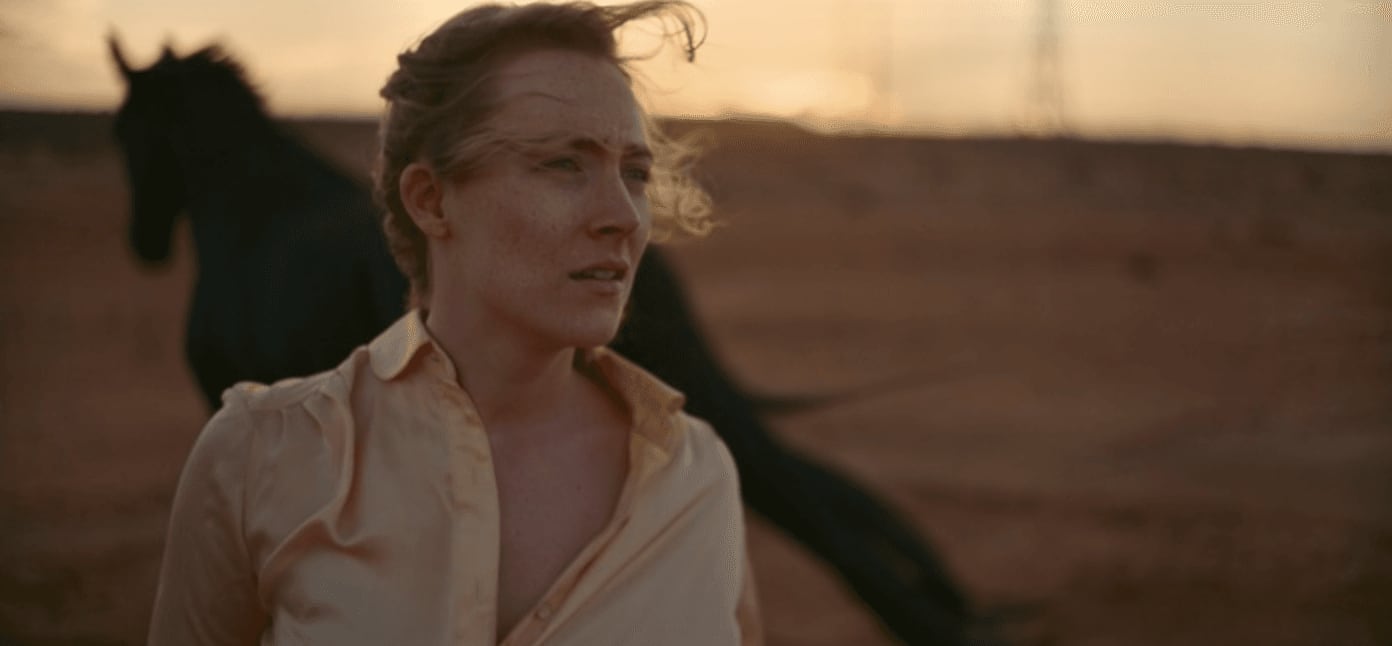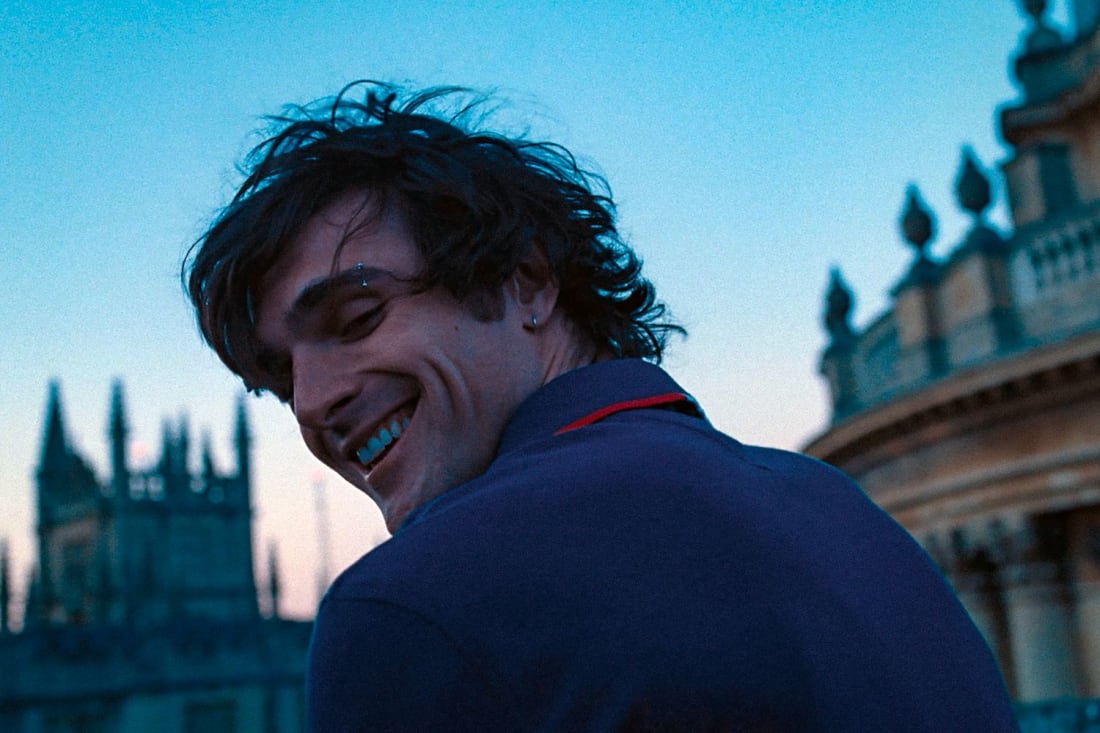The makers of Foe on the future of relationships
Director Garth Davis and author Ian Reid talk to woo about building a dystopian narrative that captures the fears of human interactions
Director Garth Davis and author Ian Reid talk to woo about building a dystopian narrative that captures the fears of human interactions
To call Foe a sci-fi thriller feels limiting. Garth Davis’ latest film, starring Paul Mescal and Saoirse Ronan, packs a multitude of genres and themes into 108 minutes. The movie is a bone chilling adaptation of Canadian author Ian Reid’s 2018 book of the same name. Set in 2065, it centres around the myopic lives of Junior (Mescal) and Hen (Ronan) who live in a rural farm, cordoned off from the tech-dependent hyper modern world. In this world (much like ours), nature is dying - fields are barren, rain is an anomaly and horses are a rare, mythical sight.
Scientists are working tirelessly to hatch a climate migration plan where life can be built in outer space. If the prospect of being drafted for war is a present day human horror, in Davis’ film, being chosen to be launched into space is the plague and pride of the future. A curse that falls upon Junior, who is forced to live away from his wife for two years to serve as one among thousands of guinea pigs who are sent to the alternate world.
But the magic makers have a plan: instead of abandoning his wife, Junior would be replaced by a “living tissue, biological copy” of himself for the duration of the space trip, with the promise that AI Junior would be an extension of the real human’s consciousness. At a time when Meta’s AI celebrity personas have a striking realism, Foe is a reminder of just how close we are to this dystopian future. If it sounds like a lot, it’s because it is.
For big chunks of the film you may find yourself wondering, “No, wait what is happening? Who is that?!” And that’s the point: Foe is a better film when you let your perception run wild. The movie is as much about the havoc wreaked by stillness and complacency in relationships as it is about the regression of the planet or the influence of AI. Despite being shockingly futuristic, the story boils down to very familiar human emotions - the fear of moving forward, the quest for agency and a love frozen in time.
Below we speak to Davis and Reid about their labour of love. From what inspired these narratives and how Hen and Junior’s relationship reflect the flaws of modern dating to the nuance of creating a terrorising world where nature is a thing of the past, the duo break it all down:

Garth, why did you decide to adapt Foe, what drew you to the story?
Garth Davis: Well, I read Foe in one sitting actually, I couldn't put it down. I guess what struck me when I first started reading it was how visual it was and how it had all the qualities of old cinema. You know, the kind of Hitchcockian setup of a stranger arriving in the night; I was completely drawn in by the mystery of the story. But then I was really taken by the diversion, it went in a completely different direction and became this incredible study of a relationship under pressure. I found that fascinating and unexpected. And ultimately, I just fell in love with the central character Hen and what she was fighting for.
Ian, the story looks at how much space AI can take up in the future. What do Hen and Junior’s dynamic tell us about the future of relationships? What should we be wary of, if anything?
Ian Reid: One thing that seems to be more prevalent than ever, in terms of interpersonal relationships, is the role of technology within - it is changing so fast all the time. And now obviously, with AI it's harder for people to maintain relationships in a human way, that requires work and effort. Like most things, you need to practice, you need to interact with people and it's not something you can do solely in the virtual realm. Something that I am very aware of is how that [human interaction] will change over time when we rely more and more on technology. How can we still maintain human relationships? Perhaps, the two things can coexist. But to my mind, we can't fully give ourselves over to that virtual realm. Otherwise something that seems to be inherently human will be lost; and I think relationships are the most important thing for being human. When I think about my own life and the things that I value the most, it always comes back to relationships.
Hen and Junior seem to be in love with a certain idea of each other. There’s a stillness that they both want to hold on to. Why does this become the central focus of their relationship?
Ian Reid: Often in books and in films, we see relationships affected by something very sudden and dramatic, there’s an affair or a big change that results in action. But I became interested in trying to write about a relationship that’s affected, sort of slowly over time. Because I think this can happen when people aren't willing to adapt, be present and consider the other person. If you exist in a selfish way, only thinking about your desires it's not going to be a healthy relationship for you or the other person. I wanted to explore how over time you might lose your own identity within that relationship based on this narrative that's been written for you by the other person.
There's a line at the beginning of the movie when they're talking about going on a plane and Junior says, “Well, Hen’s never been on a plane and she would hate it”. It’s a very easy line to miss but it's also packed with a lot of significance because he's making a statement about something that she’s never experienced. When those things happen over time, it's like paper cuts. You start to believe the other person’s narrative of you and that’s what Hen’s journey is about, it begins when she starts to realise that that narrative might not be true.

Can you tell me about the bugs and what they symbolise? The biological copies seem to be intrigued, almost in awe of them whereas the real Hen and Junior don’t care for them.
Garth Davis: We would encourage everyone to have their own interpretation of what the bugs mean, and for their interpretations to be absolutely correct. It's there for people to project into. But for me, you're totally right, both AI characters in the story are kind of fascinated by the beetle. It draws back to a Buddhist idea of how when we're born, we see things clearly, we see the wonder of things and we’re aware of it. But over time we start to live in our minds and our egos kind of pollute our eyes, we forget to appreciate what's special in the world. That's what I like about the beetle, it's reminding us to appreciate and see things for what they are.
When my friend and I watched the movie, she said Foe is at least a “two time watch” because of its complexities. What do you think will be different when people come back to the film?
Garth Davis: I agree. So the first time it raises a lot of questions, thoughts and reflections, it's very engaging in that way and you process it for days afterwards. I think the second viewing is completely different because you're aware of the truth of the story. So then my guess would be, it’s seeing a film about Hen’s journey, an emotion that you'd be connected to from the very first shot. It is literally two different movies as an experience. And for some, it’s also a story about the regression in the planet and the environment itself because there’s such strong imagery and visuals.
Yes, seeing empty fields and nature disrupted in such an inevitable way was quite scary. Why did you decide to set the story against this doomsday backdrop?
Garth Davis: These are issues that feel very imminent right now. When you see that threat so closely, it does raise questions, it makes you think about your own life like “am I living my life to the fullest” or “am I appreciating the time that I have”. Those elements really do bear down on Hen, she’s feeling a desperation as though things are coming to an end and she doesn't want to deny who she is any longer. I really relate to that. Since these issues of the environment are so pertinent today, they bring Hen’s story and the themes right to the forefront.
Ian Reid: To me it’s a visual representation of a time when we lose that wonder and excitement as people and it feels like something is dead in a relationship. It's easy to have that curiosity at the beginning of a relationship because it's new and you don't know the person. But it takes work to keep that feeling as you advance and things become kind of predictable. But you need to maintain that and this is how we think of the world as well. You know, if we didn't know anything about the earth, and we just dropped down here, every little thing, a tree that we would see would feel magical and wonderful. And yet, we now exist in a way where we don’t see it at all. We just take it for granted and we're losing it. And I think that's exactly reflected in the way that Junior thinks about Hen. Okay, he's married to her. He has a wife so now he doesn't really have to think about building their relationship. She's just there and is always going to be there. And that's not really a healthy or a sustainable way to exist within a relationship.
Watch Foe in theatres across the UK and Ireland from October 20.



